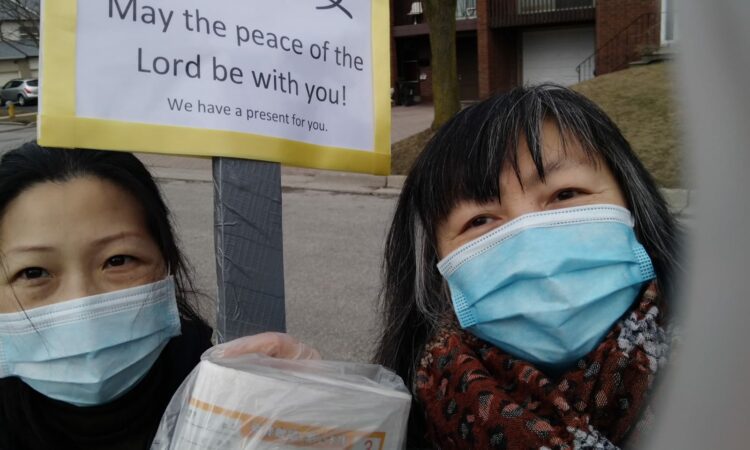Rev. Kenneth Kin Hang Lo
Since the beginning of the pandemic, the Internet has become the most important way for us to contact the outside world. Someone once joked: “We can go out without our wallets, or stay at home, but we can’t survive without the Wi-Fi or mobile phones!” This is because all the data and messages are on our phones. Of course, they also have the Internet connection to the outside world.
All of a sudden the way of the church has changed: worship, fellowship, prayer meetings, and all other gatherings became online meetings. Everyone can bring the church into their own home without leaving home, which is very convenient. You can even choose to listen to the world’s leading pastors and speakers, and you can attend multiple meetings a day, which can be of great help to our spiritual life. For many people, this arrangement is perfect. Not only have we not given up meeting together, but we continue to grow our spiritual knowledge. Perhaps this kind of online gathering arrangement has become an alternative blessing in the pandemic.
I have personally heard the above arguments dozens of times, and gradually it seems to have become a mainstream opinion, that online gatherings will be the new normal of the church. From a certain point of view, especially from a learning point of view, online gatherings have indeed shortened the geographical distance between people, because good speakers and teachers are often hard to come by. Also, online meetings can broaden our horizons and methods of learning, and this is beyond doubt. Even I myself have taken quite a lot of online courses during this period and have benefited a lot. But is this all our belief about?
After getting to know some unbelieving friends around, especially those who have been affected by the pandemic, I have become more aware of the practicality of our beliefs. This practicality cannot simply be experienced from studying the truth, but it must also come from applying the truth in our daily lives.
In the past months, many unbelieving friends would ask Christians how we spent our time staying at home. They are not asking about things that we all experience together: how to stay at home and pass the time, for example. These are what everyone experiences every day. They actually want to ask, how do we Christians deal with this adversity? Why do we still hold onto a kind of hope for the future? Because for the unbelievers, the situation is so bad to the point that there is simply no hope. But they see us Christians still holding hope in this adversity, helping the disadvantaged in the pandemic, giving masks to people in need, and buying daily necessities for those in financial difficulties. To them, it is something incredible! I believe this is enough to show the unbelieving friends that there is something we believers have and they don’t. It is something that cannot be displayed just by having the word “Christian” written on our foreheads. It can only be fully expressed through our Christian daily life. This inner being is actually God Himself. Through our daily life, He reveals Himself to the world. This is also the most attractive part of our faith.
Think again about the previous argument: that the Internet is everything and the source of knowledge. I am not denying its value. But if there is a power outage or a network failure, this source will be no more. Look at the recent power outages in Texas and Taiwan, and you can understand that over-reliance on the Internet does not guarantee the growth of our spiritual lives. Our head (knowledge) may grow bigger and bigger, but our hands and feet (behavior) could become shorter and shorter, and we gradually become weird spiritual babies. Not only can we not self-grow, but we cannot influence others either. Is this what God wants from us?
Matthew 5:13-16 is a very familiar passage: “You are the salt of the earth. But if the salt loses its saltiness, how can it be made salty again? It is no longer good for anything, except to be thrown out and trampled underfoot. You are the light of the world. A town built on a hill cannot be hidden. Neither do people light a lamp and put it under a bowl. Instead, they put it on its stand, and it gives light to everyone in the house. In the same way, let your light shine before others, that they may see your good deeds and glorify your Father in heaven.”
This passage emphasizes how we can be salt and light to the people around us. It does not emphasize the growth of knowledge, nor stay at home and enjoy the so-called self-growth without interacting with the outside world. Let me reiterate: I am not against knowledge, and I believe that knowledge is necessary because correct knowledge can lead to correct behavior. But having only correct knowledge but no behavior is not pleasing to God.
From the perspective of missions, by all means, continue to learn online to increase your knowledge, but don’t forget to apply what you have learned to your daily lives, because people outside are still waiting for someone to show God’s hope to them, practically and realistically. I believe this is the most important thing.
Let’s encourage each other!

